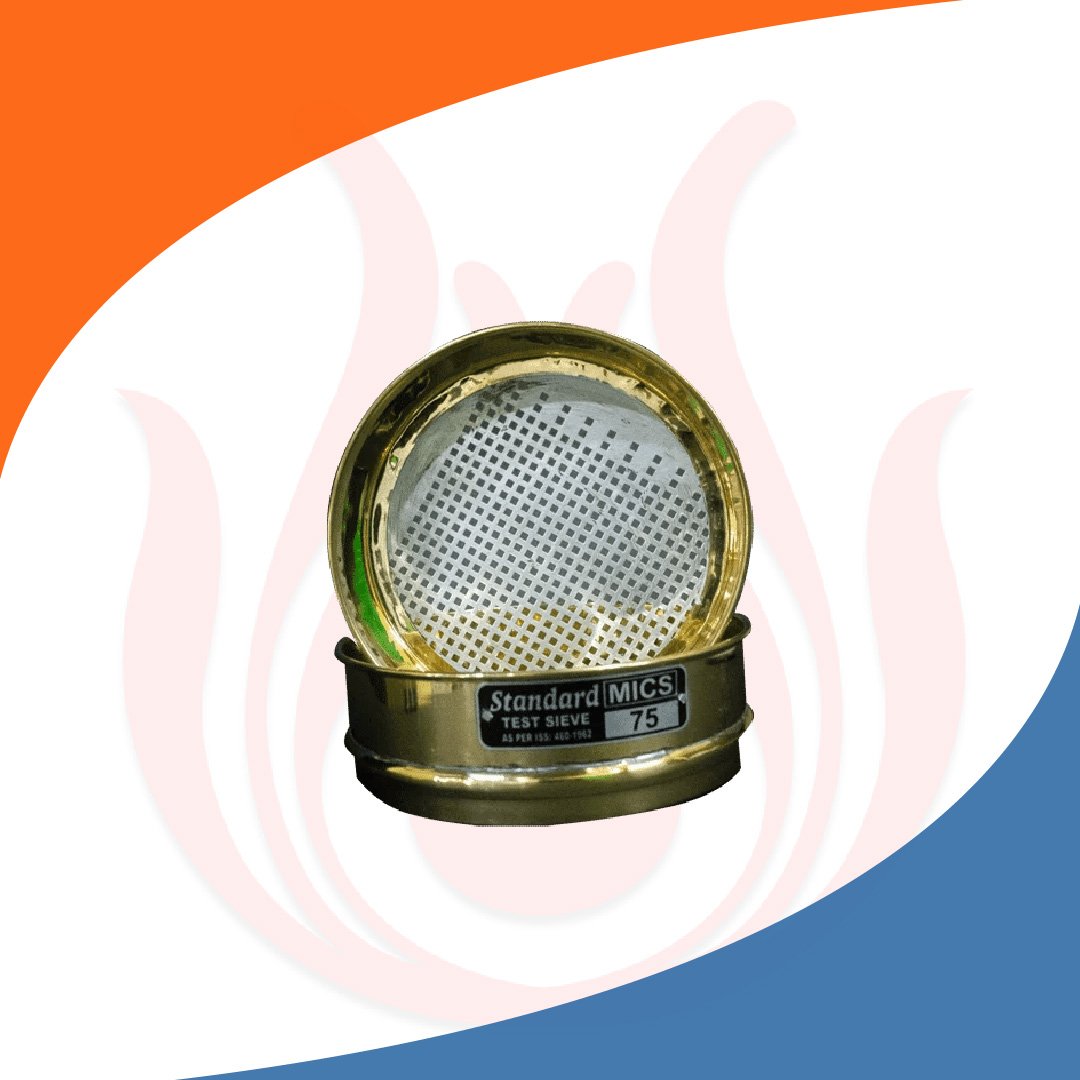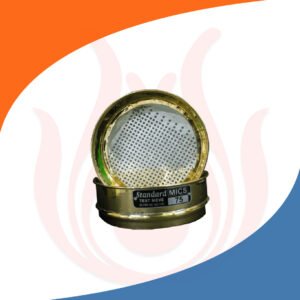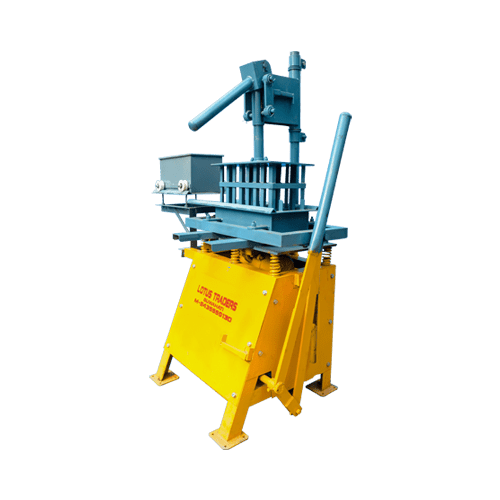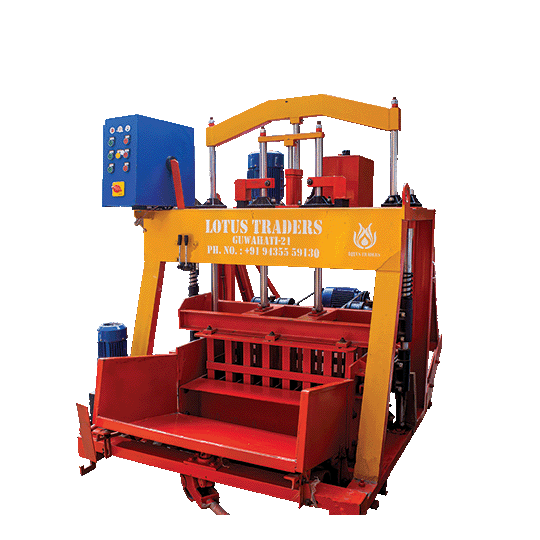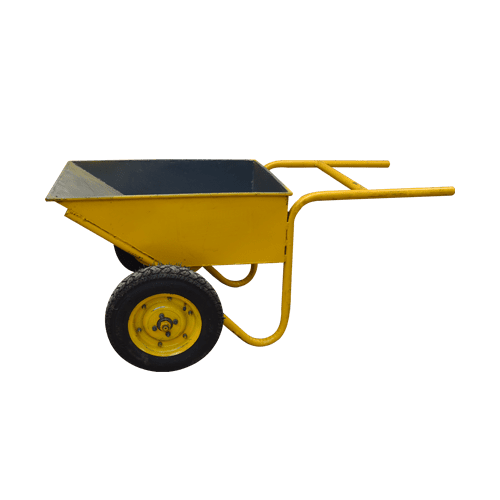Brass Sieves
- High Quality Materials
- Compliance With Standards
- Clear Product Information
- Warranty & Support
- Product Testing & Certification
- Delivery & Policy
- Ask a Question
- Estimated Delivery: 5 Days – 10 Days
- DESCRIPTION
| BRASS FRAME SEIVE 100,200,300 & 400 mm Dia | |||
| (BS 410) | (IS 460 PART 1.1985) | ASTM E 11 MICRON | (APENTURE) |
| – | 4.75 micron | 4 | 4750 |
| 4 | 4.00 micron | 5 | 4000 |
| 5 | 3.35 micron | 6 | 3350 |
| 6 | 2.80 micron | 7 | 2800 |
| 7 | 2.36 micron | 8 | 2400 |
| 8 | 2.00 mm | 10 | 2000 |
| 10 | 1.70 mm | 12 | 1680 |
| 12 | 1.40 mm | 14 | 1400 |
| 14 | 1.18 mm | 16 | 1200 |
| 16 | 1.00 mm | 18 | 1000 |
| 18 | 850 micron | 20 | 850 |
| 22 | 710 micron | 25 | 710 |
| 25 | 600 micron | 30 | 600 |
| 30 | 500 micron | 35 | 500 |
| 36 | 425 micron | 40 | 425 |
| 44 | 355 micron | 45 | 355 |
| 52 | 300 micron | 50 | 300 |
| 60 | 250 micron | 60 | 250 |
| 72 | 212 micron | 70 | 210 |
| 85 | 180 micron | 80 | 180 |
| 100 | 150 micron | 100 | 150 |
| 120 | 125 micron | 120 | 125 |
| 150 | 106 micron | 140 | 106 |
| 170 | 90 micron | 170 | 90 |
| 200 | 75 micron | 200 | 75 |
| 240 | 63 micron | 230 | 63 |
| 300 | 53 micron | 270 | 53 |
| 350 | 45 micron | 325 | 45 |
| 400 | 38 micron | 400 | 38 |
| 500 | 25 micron | 500 | 25 |
Information About Brass Sieves:
Brass sieves: Filtering excellence and building precision.
Brass sieves are very important in different jobs, mostly for measuring small particles and separating them. These screens are made from solid brass, a mix of copper and zinc that is known for being strong and not rusting. The strong brass used in sieves makes them last a long time, making them perfect for tough jobs.
One of the main jobs of brass sieves is to correctly sort pieces by size. Used in labs, factories and research places these nets help check the quality of things like tiny powders or big rocks by separating them for better use. The holes in the sieve cloth are set to international rules, which makes measuring particle size more accurate and trustworthy. Beyond doing their job well, brass sieves are liked because they don’t react with chemicals. This makes them great for straining a lot of different things without losing accuracy or precision.
The brass tools have a special gold-like look that makes them more attractive to use. Being able to do many things is a big thing about brass sieve. They’re useful for lots of places like farming, medicine-making and building stuff from different businesses. Whether checking how fine flour is or testing materials for making concrete, brass sieves are very important. They help engineers and scientists who check quality goods all the time. In the end, brass sieves are very important tools in businesses that need exact particle size checks. Their mix of strength, correctness and beauty makes them important tools for keeping materials good in different uses.
KEY FEATURES
Brass sieves are helpful tools that many businesses use for checking particle size and separating materials. Their main points make them a top pick for lots of uses.
Durability: Brass is strong and does not rot easily. This makes the sieves last a long time even in tough places.
Accuracy: Brass sieves are very carefully built to give exact and trustworthy information about the size of tiny bits. This is important in fields like farming, medicine making and construction works.
Uniform Apertures: The sieve net has small even holes which are tightly close together. This makes sure that when you use it to separate things, the results will be good every time and very accurate. That is important for getting correct information in research or making sure something is of high quality.
Temperature Resistance: Brass strainers can handle a lot of heat, making them good for uses where the temperature goes up and down. This makes them good to use in places like labs or factories.
Chemical Compatibility: Brass is good with chemicals, making the screens work well in different substances used for testing and checking. This does not hurt the metal itself.
Ease of Cleaning: Brass sieves are easy to clean. This lowers the risk of getting bad samples during tests, which is important for good results.
Regulatory Compliance: A lot of businesses have rules for sorting things out, and brass sieves usually follow these rules. This makes the results trustworthy and constant as they match what other companies need from it all.
Versatility: Copper sieves can be used for many things like checking soil in farming or testing medicine powder. They are good to use by industries with different needs. In short, brass sieves are important tools for analysing particle size and separating materials in businesses where getting things right is very important. They are tough, accurate and can be used many ways.
UNDERSTANDING THE WORKING PROCEDURE
Brass sieves are very important in checking particle size. They are often used by farmers, drug makers and builders. The brass sieves work carefully to make sure the results are true and dependable. These strainers are made of a round brass frame and have tightly attached mesh screens in them. We pick the net carefully based on how small we need to break down particles. While it is working, the test material is put on a shaker and then that stack of sieves gets hit or jiggles with force. The shaking makes little bits go through the filter while big ones stay put.
The strength and length of the shaking are set to keep things even for the study. After the sieving process, we gather and weigh any particles that were trapped on each screen. Looking at the weight of particles on different sieves, we can make a graph showing particle sizes. This is important for checking quality and doing research work. People like to use brass for these sieves because it is strong and won’t rust. Furthermore, brass always conducts heat evenly.
This means it doesn’t mess up with stuff that is sensitive to changes in temperature. To keep brass sieves working well, you need to check and fix them often. It’s very important to use the same steps and rules when sifting. This makes sure you get correct results every time in many businesses that using particle size checks is necessary.
USAGE AND APPLICATION
Particle Size Analysis: Brass sifters are used a lot in testing particle size across different businesses. They let people measure the exact size of small parts in things like sand or dirt very accurately.
Quality Control in Agriculture: In farming, brass sieves help check quality by sorting soil bits of different sizes. This helps make soil better for growing crops.
Construction Material Testing: They are used in building to check the size of sand and gravel particles, making sure they meet requirements for concrete and other stuff we use when constructing.
Pharmaceutical Industry: Brass sieves are very important in making medicines. They help measure the size of powder and granules, which makes sure that medicine works properly and is consistent each time you use it.
Food Processing: In the food business, brass strainers are used to make sure things are just right. They help check and manage tiny pieces of ingredients like flour so that all food products have a similar consistency.
Chemical Laboratories: In chemical tests, scientists use brass sieves to separate and categorize small things. This is important for researching new stuff in lab places.
Powder Metallurgy: Brass screens are important in metalworking processes that classify powdered metals used to make joined parts and other things made from metal.
Geological Surveys: Scientists study soil and dirt samples using a special tool called brass screen. This gives them important knowledge about the rocky make-up and past of different areas.
Environmental Monitoring: Brass sieves are used in nature studies to check small bits in air and water samples. This helps us watch pollution levels, know how much harm we’re doing to the environment.
Educational Purposes: Brass sieves are used like school tools in labs and schools. They help students learn about different ways to split things based on their size, which is important for studying many science topics.
ADVANTAGE AND BENEFIT
Brass sieves have a range of advantages in different applications thanks to their durability, corrosion resistance, and accuracy. The benefits include: Durability: Brass is a strong material that means the sieve’s durability even if it gets used quite often. Corrosion Resistance: Brass is naturally corrosion resistant and could be utilized in wet or corroding settings without undermining its structural soundness. Precision Sieving: Brass sieves can be made precisely, offering industries such as agriculture, food processing and materials testing with precise particle size tests.
Heat Resistance: Brass is a good heat resistant allowing the sieves to sustain high temperatures during certain industrial processes without deformation. Chemical Compatibility: Brass works well with many chemicals and can be used in environments where contact is possible between the sieve and different substances.
Antimicrobial Properties: Brass has antimicrobial properties that can be used for good in areas where hygiene is important such as the pharmaceutical or food industries. Ease of Cleaning: Brass surfaces are easy to clean thus contributing to hygiene and keeping the risk of contamination at sensitive industries minimal. Aesthetic Appeal: Brass sieves are usually polished and visually appealing, which can be a plus in industries where the visibility of equipment plays a role. On the other hand, sieves are to be chosen based on your specific requirements and industry needs by considering these factors.
CONCLUSION:
Investing in brass sieves from Lotus Traders emerges as a testament to prioritizing quality, precision, and reliability in material testing and analysis. Lotus Traders, recognized for its unwavering commitment to excellence, offers brass sieves crafted with meticulous attention to detail, ensuring durability and accurate results. Choosing these sieves signifies a strategic alignment with a trusted partner, guaranteeing not only superior product quality but also comprehensive after-sales support, expert guidance, and unmatched industry expertise.
By integrating Lotus Traders’ brass sieves into your operations, you are poised to elevate material testing standards, enhance accuracy, and bolster confidence in results. In essence, procuring brass sieves from Lotus Traders encapsulates a journey towards excellence, fortified by trust, innovation, and unparalleled support, ensuring optimal outcomes in every analysis and application.
Do not use harsh chemicals to avoid damage.
Manual cleaning is recommended. Brass sieves have a mesh size of Brass sieves vary from coarse to fine. Pick a sieve that has the proper mesh size for your particle size analysis requirements
Yes, brass sieves can be made to measure occasionally by employing calibration spheres or other standard materials to garner correct and reliable results.
Brass sieves are somewhat corrosion resistant but will tarnish with age. They last longer if properly cleaned and stored.
While brass sieves are typically appropriate for dry materials, years of exposure to moisture might give rise to corrosion. For wet applications, consider stainless steel sieves.
Keep brass sieves in a dry place to avoid oxidation. Protective cases or covers should be used to keep them free from dust and contaminants when not in use.
Quite often, minor damage like bent frames could be repaired. Refer to the manufacturer’s guidelines or appeal them for detailed instructions on repairs.
Make sure to use clean, dry hands when you are handling brass sieves in order not introduce contaminants. Correct handling and cleaning processes as outlined in the user manual should be followed.





